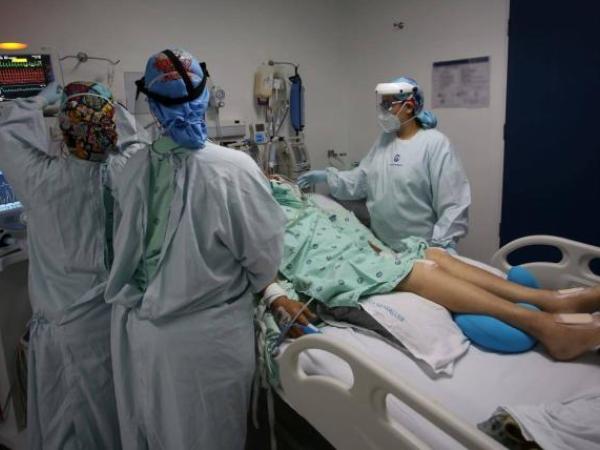Three days after the registration of the lists for constitutional advisers closes, the political map seems to take shape. On the one hand, there is the ruling party that has yet to decide whether to go in two or in a single list. If this last scenario is fulfilled, the right could be at a disadvantage, since, for a long time, they have been falling apart from each other. The split between Chile Vamos and the Republican Party could harm the electoral performance of the right-wing parties, and with the PDG on another separate list, there will be competition for the votes of the sector’s electorate.
The fact of going on united or separate lists has an obvious mathematical electoral aspect, which the parties weigh when evaluating the advantages or disadvantages that one option or another may bring. Now that the ruling party is in the middle of negotiations, the right already has its most defined lists. However, what the pro-government forces do will affect the right-wing parties in one way or another. The sociologist Axel Callís referred to the issue in Radio Dune: “If I divide forces, the electoral system punishes me. If Democratic Socialism and Approve Dignity go separately, obviously Chile Vamos is going to be the biggest list.”
Now, the distance between the Republican Party and Chile Vamos is already a fact. In both constitutional accusations – against Minister Giorgio Jackson and former Minister Marcela Ríos – they were misaligned and, now, they make the distance more palpable in terms of the registration of pacts for constitutional counselors. In this context, the other alternative, which rumored a new alliance, was the supposed interest that the PDG had in registering a list together with the extreme right group. However, from the Republican Party they affirmed that allying with Franco Parisi’s party is not a viable option.
On Monday of this week, the Republicans voted to choose their General Council, the body in charge of choosing the next national board this Saturday, February 4, two days after the registration of the list of constitutional advisers. The winning list, led by former candidate José Antonio Kast, obtained 85.93%, leaving the leadership of Rojo Edwards, who was his contender and with whom he raised controversies before the election, with little legitimacy.
The controversy was reportedly unleashed after the Republican senator criticized the party’s internal democracy system, which he considered “undemocratic.” In the face of criticism, JA Kast retorted, pointing out that when Edwards was president of the collective, he did not make any changes. In addition, he accused him of sowing mistrust. The contest was unequal, since the Republican Party is “kastista”, as revealed by sources inside the store and, with this controversy, Edwards ended up being knocked out.
This Saturday, the General Council will choose Arturo Squella to lead the party, since he was associated with Kast’s list. Regardless of who leads the community, sources within the Republican Party confirm that the line that will be followed for the constituent process is immovable, that is, a list without any other party and with the objective of protecting “life, family and the right of parents to educate their children,” said the Republican-appointed expert, Carlos Frontura.
The PDG and a decision to rebuild itself as a party
For its part, the People’s Party (PDG) will announce today, February 3, its definition regarding whether or not it will agree with any of the opposition political forces in the face of the elections for constitutional councillors. In short, it was the internal party structures that made the decision, after the dilemma expressed in a digital consultation with its bases, in which 50% of its militants opted for the idea of a unitary list, while the other 50 % spoke in favor of inclusion in an electoral pact.
In this regard, the general secretary of the PDG, Luis Emilio Peña, assured that, beyond the political definition of his community, they are currently working on the design of the candidacies, considering that Monday, February 6 is the final deadline for the presentation of the letters of each pact or party to submit to citizen scrutiny in the elections on May 7. “Now we are working precisely on the conformation of the lists that we are going to carry, with candidacies in the regions, and we want to continue working to be able to strengthen the citizen work process that we are going to carry out,” Peña emphasized.
Although a few days ago the president of the party, Luis Moreno, acknowledged conversations with both the Republican Party and Chile Vamos, and even “compliments” from some pro-government groups, the idea of an electoral pact has been disintegrating within of the PDG. This, after the failure of the Chilean proposal. We are going to form a unitary list with all those parties that were in favor of the Rejection in the plebiscite of September 4, 2022, and the eventual commitment of the Republicans to isolate themselves and compete separately. .
This is how the deputy Rubén Oyarzo (PDG) explains it, who assures that “with respect to the Republican Party, and understanding that this was betting on being a merely instrumental alliance in the face of the electoral process of the constitutional advisers, beyond our decision, and As I understand it, it is the Republicans themselves who would be choosing to go on their own list. I have indicated my personal opinion regarding this decision and, in my opinion, the People’s Party should go on its own list without alliances of any kind. Neither with the right nor with the left.
A decision that is part of the fracture of a party that, through its leader and founder, the former presidential candidate Franco Parisi, is committed to rebuilding itself. And it is that the controversial economist returned to Chile last Thursday and, during his brief stay in the country, held a series of meetings with leaders and militants of the PDG, where the electoral challenges, the bankruptcy in the bench and how to strengthen the party institutionality , were the central themes of these dialogues.
It should be remembered that deputies who headed the People’s Party in the Chamber, such as the former head of bench Yovana Ahumada and the former candidate for the presidency of said Corporation, Víctor Pino, resigned from the group last December. However, those parliamentarians would even be analyzing his return to the store, depending on the direction the game takes after Parisi’s return.


















